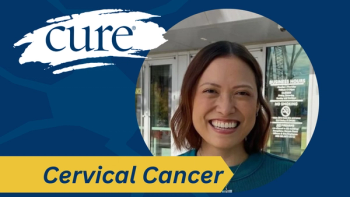
Medicaid Expansion Associated With Improved Breast Cancer Outcomes
Patients with breast cancer who lived in Southern states with Medicaid expansion were less likely to be diagnosed with metastatic disease and more likely to receive treatment.
Patients with breast cancer who live in Southern states that have Medicaid expansion were more likely to receive treatment for their disease and less likely to have advanced cancer at the time of diagnosis, according to recent research that was published in the Journal of American College of Surgeons.
“A lot of research on the Affordable Care Act has looked at trends at the national level. But if you look at a map of where states actually expanded Medicaid, the South is underrepresented,” lead author Dr. Amy Laughlin, chief quality officer at the Orlando Health Cancer Institute, said in a press release. “We wanted to make sure that the impact of Medicaid expansion on breast cancer was assessed at the Southern state level to understand the impact specifically in that region and perhaps to inform policy for the rest of the region.”
In 2012, the Supreme Court made it optional for states to participate in Medicaid expansion, which provides medical coverage to adults under the age of 64 who make up to 138% of the Federal poverty level, which is a yearly income of about $17,774 per person as of 2021. There are currently 40 states that participate in Medicaid expansion, though most of them are not in the South, according to the release.
READ MORE
The researchers on the study looked at patients who were uninsured or on Medicaid who were diagnosed with invasive breast cancer between 2011 and 2018. They compared data between those living in Medicaid-expanded states (Louisiana, Kentucky and Arkansas) to those without expansion (Tennessee, Alabama, Mississippi, Texas and Oklahoma).
Findings from 21,974 patients showed that those in the Medicaid-expanded states had a 7% decreased chance of being diagnosed with stage 4 (metastatic) disease. Patients in the Medicaid expansion states were less likely to be uninsured (18.9%) compared to those living where there was not expansion (41.1%).
Additionally, when patients received a diagnosis in states that had Medicaid expansion, they were 2.27 times more likely to receive treatment compared with those in states that did not expand. “And this is regardless of expansion, so more likely due to intrinsic factors in the state,” Laughlin said.
Patients who live states without Medicaid expansion were more likely to be uninsured, Hispanic and live in an urban area with lower levels of poverty.
Dr. Quyen Chu, a surgical oncologist who formerly worked at the Louisiana State University Health Sciences Center in New Orleans, explained that he would often see patients who traveled for cancer care from Texas, a state that did not adopt the Medicaid expansion, to Louisiana, a state that did.
“Those encounters are something you don’t really hear about. But from my personal experience, that’s what I saw during my time when I was practicing in Louisiana,” Chu, who now works at the Orlando Health Institute, said in the release. “There are vulnerable patients who don’t have access to care, and we wanted to look at the facts to know whether the (Affordable Care Act) expansion had an impact on those patients. We wanted to be apolitical about it; we didn’t know the answer before doing the study.”
Looking forward, the researchers said that these findings highlight the need to improve access to the latest cancer care in vulnerable populations.
“As a society, we have made tremendous gains in terms of finding novel therapies, such as immunotherapy or targeted drug therapy. But the question is, how many of these patients actually benefit from those discoveries?” Chu said. “Theoretically speaking, everyone should benefit from those discoveries. For the next step, we would like to look at if we see an impact for those who live in rural areas or belong to vulnerable populations.”
For more news on cancer updates, research and education, don’t forget to




